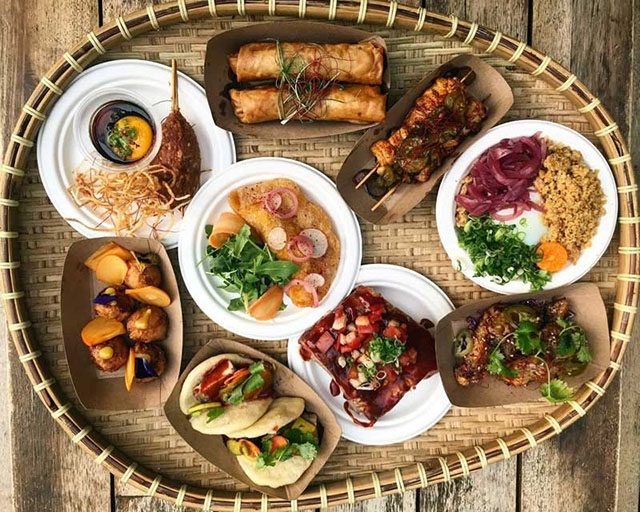
Two foreigners described Filipino cuisine being the “worst” in Southeast Asia on Twitter.
Tom Pepinsky, a professor teaching comparative politics at Cornell University, ranked Filipino cuisine at the bottom of his list. Indonesia-based writer Kate Walton then expressed her distaste in Filipino food.
Pepinsky shared a list of his top nine preferred cuisines in Southeast Asia on May 5.
Southeast Asian national cuisines, ranked***
1. Vietnamese
2. Lao
3. Singaporean/Malaysian
4. Thai
5. Burmese
6. Indonesian
7. Cambodian
8. Timorese
9. Philippine— Tom Pepinsky (@TomPepinsky) May 4, 2019
Walton later commented: “Filipino food is definitely the worst in the region.”
This tweet was based on her food preferences, she added, as a response to users.
Hours later, Walton reiterated her view of Filipino food in a separate post.
“Sorry but Filipino food is bland. I’ll choose spicy food over it any day,” she said.
Lol Filipino Twitter saw my reply to @TomPepinsky about Filipino food, and now they're mad.
Sorry but Filipino food is bland. 🤷 I'll choose spicy food over it any day.
— Kate Walton (@waltonkate) May 5, 2019
Both Walton and Pepinsky are not food journalists or critics by profession and were just airing their preferences on the microblogging site.
Their opinions, however, soon earned the ire of some Filipinos online and perceived them of being disrespectful of Filipino culture.
Twitter user @abbiealmasco cited late renowned chef and producer Anthony Bourdain’s way of giving food reviews as comparison.
“He tried so many dishes all over the world and I’m sure he had his opinions but he was always so respectful of other peoples’ cultures and never did I ever hear him compare cuisines from each other, or rank them,” the user said.
“I surely hope you’ve tried every single dish from Asia to justify your claim,” she added as reference to Walton.
I miss Anthony Bourdain.
He tried so many dishes all over the world and I’m sure he had his opinions but he was always so respectful of other peoples’ cultures and never did I ever hear him compare cuisines from each other, or rank them. https://t.co/QDKw1Zm5IG— Babe Ruthless (@abbiealmasco) May 5, 2019
Following the various criticisms she received, Walton issued an apology on May 6.
“My comment was about food preferences and poorly-phrased. What I meant was that Filipino food is my least favorite in the region. I apologize for my bad wording,” she said.
Walton also took the time to place the apology on the tweet of @abbiealmasco.
To this, the Twitter user responded:
“I appreciate you taking the time to reply to my tweet. You have to understand why we came for you after you said that, though. I’m all for respecting personal preference and I’m sure we all learned something here,” she said.
Pepinsky also gathered scrutiny for his post.
Ethics on food reviews
While the two users do not claim to be food writers, people may expect those who criticize or review cuisines from other cultures or countries to conform to ethical guidelines observed by professional tasters.
The Association of Food Journalists has five core principles for its members based on its website:
- We take pride in our work and respect the work of others.
- We do not abuse our positions.
- We avoid conflicts of interest.
- We recognize and respect diversity.
- We are committed to total transparency in our work.
With respect to culture, part of respecting diversity includes
“Food journalists should avoid perpetuating stereotypes and prejudices through their story angles, source selection and outdated language, such as the phrase ‘ethnic food.’”
Moreover, given the subjectivity of food tasting, food journalists should also “acknowledge and examine competing points of view.”









